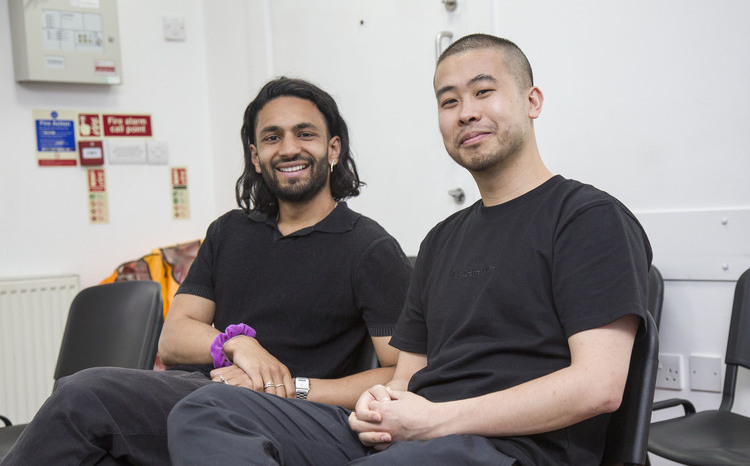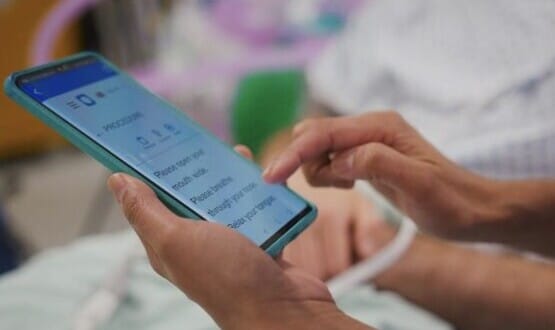Digital Health Rewired Pitchfest 2022 finalist profile: Little Journey

Our next profile of our 2022 Rewired Pitchfest finalists is focused on Little Journey, a start-up which aims to psychologically prepare, inform and support children and families before, during and after healthcare interactions. Co-founder and anaesthetic doctor, Chris Evans, answers some key questions on Little Journey’s story up to now and gives advice for other digital health start-ups.
What does Little Journey do?
Little Journey is a digital eSupport platform designed to psychologically prepare, inform and support children and families before, during and after healthcare interactions.
The patient-facing, freely downloadable Little Journey smartphone app, co-created with input from children and families, delivers interactive and engaging content tailored to the child’s age, procedure type and hospital location.
It contains virtual tours, information articles, hospital guides, relaxation animations and games, all aimed at reducing peri-procedural anxiety and improving patient experiences and health outcomes.
An accompanying Little Journey web-portal, accessed by healthcare organisations, enables staff to configure app content to their local organisation’s policies and patient pathways ensuring guidance that is relevant, up-to-date and accurate.
What gave you the idea for Little Journey?
As an anaesthetic doctor and father to three young children I had witnessed first-hand the distress experienced by young patients attending hospital for surgery. Partnering with Sophie Copley, an expert in human-centred product design, we created a prototype version of Little Journey to roll out in several hospitals.
Receiving positive feedback from both hospital staff and families drove us to refine and enhance the product further, helping to support more children to better health.
How will Little Journey change the way the NHS works?
Peri-procedural anxiety is common, affecting 50-75% of children. Psychological preparation has been shown to be effective in reducing anxiety but is time consuming and costly. In most cases, information is provided in the form of paper leaflets with anaesthetists spending an average of just six minutes pre-procedure in which to gain rapport and explain risk.
The Covid-19 pandemic has exacerbated these issues: reducing the ability to provide face-to-face preparation and increasing fear associated with hospitals. Little Journey provides healthcare organisations a cost-effective solution enabling families to access support and information at a time and location convenient to them.
An independent health economic evaluation conducted in 2019 demonstrated £3.50 and £6.00 cash/non-cash releasing savings for healthcare organisations and society respectively for every £1 invested.
What gap in the market does Little Journey address?
Little Journey is licensed on a B2B model to the NHS, private/international hospitals and contract research organisations involved in paediatric clinical research trials. Currently, psychological preparation pre-procedure is severely limited by time and cost resources; information is predominantly in the form of paper patient information leaflets.
Existing digital paediatric experience solutions used for routine care or research trials are often generic in nature, are not tailored to the procedure, hospital or end user and do not collect or use outcome data for meaningful analysis.
By contrast, Little Journey provides a multi-faceted, tailored experience (by age and hospital/patient pathway) – a single app delivers psychological preparation, care-giver information articles, coping strategy training and distraction games.
How have you got to where you are now?
Hard work, optimism and through surrounding myself with a great team of advisors, mentors, co-workers and, of course, my family.
Why did you decide to enter the health tech start-up space?
The NHS is currently under intense pressure from multiple directions: increased demand (in part due to an ageing population and the Covid-19 pandemic) coupled with cost-saving measures due to economic recession means that now more than ever resources and service provision must be expertly managed to provide the care and service that patients need and deserve.
I believe that innovations in digital healthcare can deliver a viable method with which to improve service efficiencies, provide cost benefits and enhance patient experiences and health outcomes.
Have you faced many barriers in getting Little Journey off the ground?
Developing Little Journey into a viable, market ready product has been a steep learning curve. Arriving in the health tech world with a purely clinical background meant that I had to catch up on the intricacies of design and development, not to mention business planning, at a rapid rate.
Thankfully I was fortunate enough to meet a great designer in Sophie and have a superb team of developers working on the platform.
Why did you decide to enter Pitchfest?
Pitchfest is a fantastic opportunity to showcase the Little Journey product amongst peers and digital Health Tech experts. The team at Little Journey passionately believe in the power of our product to improve healthcare experiences and health outcomes for all, we are always keen to showcase our platform!
We also appreciate the opportunity to network with others working in the digital space, learning from their experiences and expertise.
How did you find the experience?
Presenting at Pitchfest was a nerve-wracking adrenalin rush! It was a great chance to hear and learn from others and to polish my own presentation skills.
Looking to the future, what do you hope Little Journey will achieve and what’s the next step in achieving that goal?
Little Journey has a really exciting next twelve months lined up. We have recently been accepted onto The LEGO Foundation Play for All Accelerator which will see us enhance the app for use by autistic children and children with ADHD.
As part of this, Sophie and I have just spent a thought-provoking and insightful week at LEGO H.Q. in Billund, Denmark learning about the importance of inclusive design and the power of learning through play.
In addition, work is underway on creating new pathways (including MRI, ITU and NICU) and we are exploring the use of data to provide a more personalised solution based on individual health behaviours and preferences.
What advice do you have for others looking to enter the health tech start-up scene?
Never underestimate the time it takes from conceptualising a product through design to development and product launch. Keep positive; learn from your setbacks but don’t dwell on your failures.




